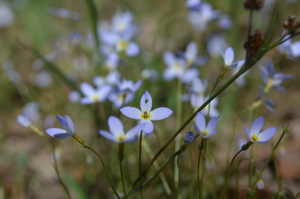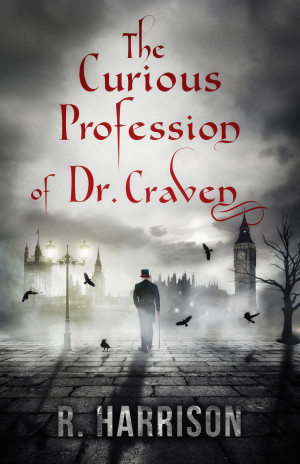R. Harrison's Blog, page 26
April 6, 2016
A Formulaic Romance, Chapter 3. #amwriting #wip #romancenovel
Things get more serious in this sweet romance. Lord Hartshorne isn’t as clueless about his Uncle’s machinations as he seems. He decides that this young woman will do. She’s not as dashing as his lost Antonia, but presentable, friendly, and more importantly not likely to hurt him. Life together won’t be passionate, but it will be comfortable and companionable.
It continues from the previous chapter, or you can start from the beginning.
My co-author Amelia and I often put the beginnings of books on my, now our, blog. They don’t always make it to the end, but it’s helpful for our writing. This is another Regency Romance. This time without grave robbing or financial dealing and legal chicanery.
A Serious Chapter.
Next morning, the rain, having finally, finally broken, George, with the time hanging heavy on his hands, found Rachel and Lucinda at breakfast and said, “I feel like a ride. Do you ride Miss?”
“I used to.” She grimaced, “Sold my hunter to pay for this trip so in a sense I’m wearing her.”
“That’s too bad. Rupert used to keep a good stable. He’s let it go in the last years, but I’m sure there’s something worth throwing a leg over. Would you be willing to accompany me on the downs?”
Lucinda gushed, “Yes. I like to ride as well.”
George bowed to the inevitable chaperone, and realizing that Lucinda was better company than most chaperones, rose and bowed. “I’ll inquire about the horses and see if there are side-saddles.”
After he left, Lucinda turned to Rachel and said, “What an elegant man.”
“Yes, A pity he’s engaged … to a Miss Deacon, his ‘Charity.’ The good ones all get taken. I think we’d best hurry to London before they’re all gone.”
“Don’t be so cynical. There’s always, what was it Lord Beddlington called him? Gas.”
“He’s handsome enough, I’ll grant you, but so dashed odd. Buried in that workshop of his.”
“You can change that, can’t you? Or at least take an interest in his work.”
“I suppose.” Rachel studied the room, found it lacking inspiration, and finally said, “I suppose I could change my name to Sodium, Natria or something elemental. Then he’d like me.”
George overheard that as he entered the room, “I wouldn’t, Ma’am. Rachel is a pleasant, if unusual name.”
“My father found it in the Old Testament. Could have been worse, Delilah or Jael. What did you find about the horses?”
“I found Brindle and he sent a footman. Unfortunately, he remembers only one serviceable side-saddle. If that.”
Lucinda’s face fell. “So a groom will accompany you.”
“Unfortunately, yes.” George bowed gently again, “I should much rather have both your company.” As he straightened he smiled at Rachel, “Lady Hayforth, I await your pleasure.”
****
Upstairs, in her room, Lucinda pulled Rachel’s riding habit from her trunk and brushed it down. She said, “Sad, isn’t it, that you haven’t had many chances to wear it? Since selling your mare.”
“I don’t know, Lucy. You enjoy riding much more than me. Why don’t you wear it and ride with Lord Beddlington?”
“I couldn’t.”
“Well, I shouldn’t.”
“What do you mean by that?”
“I’ve seen it in his eyes and … his smile. He likes me, and quite frankly, I like him. But he’s engaged, off the market. It would never do to become more than just friends with him.”
“Oh, and you think I’m safe, that he won’t look at me, that I’m too plain?”
Rachel laughed, “I didn’t mean it that way, but you are safer. Besides, he asked me to tempt Lord Hartshorne into going to London, and I’d best be about my business.”
Lucinda hesitated, so Rachel continued, “You’re doing me a great favour, and in any case I’ll have a chance to parade in Hyde Park on one of Lord Bromley’s nags whenever I’d like. You won’t.”
Lucinda allowed herself to be swayed. When the two women returned to the parlour, George stared at them.
“I thought, Lady Hayforth that you and I would ride.”
“Miss Holloway is the better rider.”
“Am not.” Lucinda added in a whisper.
“Is the better rider, and I’d best be about completing that task you set me. I won’t succeed if I don’t pay attention to his Lordship.”
George nodded, “Yes, there is that … Miss Holloway, pleased that you will ride with me.”
Lucinda said, “I hope that you’re not too disappointed.”
“No, not at all.” Rachel caught the hint of disappointment in his voice. It’s for the best.
****
Left to her own devices after they left, Rachel found her way to the front parlour. A spinet, dusty and disused, but surprisingly still close to in tune sat in a corner. She started playing, first from memory, and then from a piece of sheet music.
Lord Hartshorne startled her and she stopped playing, “Lady Hayforth?”
“Yes?”
“I … should like to … apologize. Last night.”
“For what?”
“I had intended to return, to keep you … and George company. It’s just … Well, I became distracted in my notes.”
“That’s what I thought. Do you mind if I keep playing?”
“No. Please do … You play very well.”
Rachel resumed playing, but continued to talk. “I thought you would be in your laboratory today.”
“Usually, but not today. Not when I have.” He paused for more than a moment, “To be honest, I caught a few too many breaths of the fumes, and need to let my lungs clear.”
“I thought you were going to say, ‘not when I have company.’”
“That too. It’s just.” Rupert couldn’t overcome his shyness.
“It’s not Antonia, is it?”
“How do you know about her?”
“Your uncle.”
“George needs to keep his mouth shut. Yes it is. Your playing, it reminds me of her.”
“Should I stop?”
Rupert stared out the window. The grey skies from the last few day’s rains were gone. He could hear the birds and imagine the fresh smell of the drying earth outside. He turned back and said, “No. I liked, I like music.”
Rachel stopped for a moment, nonetheless. “Do you play?”
“A little, I haven’t in years. Not since …”
“This is a duet. The bass part is simple. Would you-?” She blushed. It was putting herself forward.
“Join you?” Rupert studied the window again, then flexed his fingers. “I’ll try. It’s been a long time since I’ve played.”
Rachel scooted to the side of the bench to make room for him. When he sat next to her she thought, He’s so thin, needs to look after himself … needs someone to look after him.
Then they played together. It wasn’t exactly the best performance, and certainly no one would have thought either of them an adept, but it didn’t matter. They were lost in the music. Together.
Eventually the piece came to an end. Rupert said, “I haven’t sat this close … I mean played a duet with … not since Antonia.”
“I’m not her.”
“I know.” Rupert sat quietly. Rachel could see the confusion in his face.
“Tell me about her, if it would help.”
“Not much to say. A beauty. I thought, no I was in love with her. I thought she was in love with me. We were …”
“Engaged?”
Rupert nodded, “Then she eloped with Lord Biddle. Didn’t even leave me a note.”
Almost unconsciously, Rachel reached for his hand and squeezed it. “It must have hurt.”
“It did.” Rupert turned to face her. After studying her face for what seemed a very long minute he said, “But that’s over.”
“Good.” Rachel suddenly felt a little breathless. She sat too close, too alone, to a man. Not only that, she held his hand. Without gloves. The bleached streaks and white pallor of his skin accentuated the darkness of his eyes. She sat too close to a far too handsome man for comfort.
Rupert only made it worse. “Marry me.”
“What?”
“Marry me.”
“Lord Hartshorne,” Rachel rapidly backed away and tried to stand. Only to trip on her gown and land on the floor.
Rupert calmly moved over and helped her up. “I’m sure George has, by now, asked you to help shift me to London.”
“How’d?”
“I know my Uncle. For that matter, I could tell something was up, from Mrs Hobbes. The way she smirked this morning. What did he offer you?”
“To help pay for my season.”
“I see. A bit mercenary?”
Rachel laughed, “No, a bit desperate. Lord Hartshorne,”
“Rupert.”
“Rupert, then. I hardly know you, and you hardly know me. How could we possibly wed?”
“I like the way you play your instrument, and you’re beautiful. You handled my … impoliteness with grace.”
“That’s not enough and you know it. Or you’d know it if you thought it through.”
“I thought it through with Antonia. Should have just kept looking.”
Rachel saw a flash of distress on his face. He still is in love with her. “Are, are you sure? I, I can’t.”
“It won’t be passion, I’m done with passion, but I can offer you comfort, comfort and security … I think we should get on well enough. Learn to love each other in time. So what about it?”
“I can’t say yes. You know that.”
Rupert’s face fell.
“But I won’t say no. How would ‘maybe’ work for you? You’re not unattractive.”
“That’s damning.”
“Alright, you’re handsome, and you don’t seem vicious. I’m willing to see if it works. Will that do?”
“Maybe.”
“It’s better than no.”
Rupert chuckled. “You’re right. Maybe will be first rate.”
“And you’ll come to London with me?”
“I’ll bring you to London. If only to show George that he shouldn’t trifle with the head of the family.” Rupert’s smile broke into laughter.
“What’s so funny?”
“I’m just imagining the expression on my step-grandmother’s face when I turn up with a dashed good-looking armful.”
Rachel’s attempt to question Rupert about why that should matter was interrupted. Lucy stood in the door and shouted, “Miss Rachel, what are you doing? Alone with a man.”
“It’s fine Lucy. Lord Hartshorne has been a perfect gentleman. We were-”
“That is as may be. But you shouldn’t be alone with him.”
Rupert rose, bowed and said, “Miss Holloway, how was your ride?”
“It was exquisite. Now Miss Rachel, come with me. We will have a conversation, about your deportment.”
Rachel gave Rupert a wan smile, “See how I’m managed.”
“It’s for your own good, Ma’am.”
Upstairs, in Rachel’s room, as she helped Lucy out of her riding habit, she asked, “How did it go, really?”
“It was fine. The mare was a little barn-soured, but nothing I couldn’t handle. Lord Beddlington was nothing if not a gentleman.”
“Exactly what I’d expect of him.”
“It is. What, may I ask, were you and Lord Hartshorne doing?”
“Playing the spinet. I found a duet. We played it together.”
Lucy chuckled, “Since you haven’t practiced, in … I don’t know, ever so long. I’m glad I was out riding.” She noted that Rachel was unusually distracted, thoughtful. “Did something else happen?”
“He, he asked me to marry him.”
“I hope you accepted, much nicer to be engaged. It’ll solve no end of problems.”
“I didn’t.”
“You didn’t refuse him!”
“I didn’t. I said maybe.”
“Whatever possessed you? You know your situation, and … Good Lord Rachel. Get yourself back down there and tell him you accept his hand.”
“But?”
“But nothing young miss. He’ll make you happy. Happy enough.”
Rachel sighed, “I suppose you’re right.”
“I am. You know I am. With the war there aren’t enough able and eligible men left, and things are so tight with so many soldiers returning from France. We saw a mob.”
“You did?”
“I’ll tell you after you’ve talked to Lord Hartshorne. Lord Beddlington and the groom went to find the local magistrate.”
“Can you come with me?”
“Support you in your time of crisis? If you insist.”
Accompanied by her companion, Rachel returned to the study. Then she rang the bell for the servants. When Mr Brindle appeared, she asked him if he’d seen Lord Hartshorne.
“I believe, Ma’am, that he was headed to his workshop.’ Mr Brindle’s well-trained impassivity concealed his intense curiosity. “I could, if you desire, show you the way.”
“Please.”
Rupert was in his laboratory, with the window open, while he worked through his notes. Rachel’s nose puckered at the remaining smell, the peculiar tang of chemistry. “Lord Hartshorne, Rupert,” She curtsied, “About what you asked me.”
“Yes?”
“I had the time to think, to gather my thoughts. I shouldn’t have said maybe.”
Rupert’s face tightened with worry, then relaxed when he saw she was smiling at him.
“I should have said yes.”
“Do you mean that?”
“That I should like to marry you? Yes. Why would you think otherwise?” Sensing his disbelief, she continued, “I should think there’d be a queue. You’ve such a lost, helpless, romantic look. Childe Harolde or Florian personified. Besides, you told me you were done with mourning that woman.”
Rupert flashed Rachel a quick smile. “You’re right. I am done with her. And you’ve made me the happiest man.”
“Good. Especially if we’re engaged, even informally. I could still break it off and I will if you’re still holding a candle for her.”
Rupert shook his head, “Antonia is at most a bad dream, one … I think you’ve helped me wake up from it, my love.” He paused for a few moments thought. “We’ll need to attend to the settlements, my solicitor is in London.”
“Good thing we’re going there anyway. I’d like the chance to dance with you. To have a season. I’ll write to my cousin Lord Bromley … he was my guardian and will know what should be done.”
“You can do that while I finish my notes. I still intend to present my work at the Royal Academy. Then I’d love to show you the downs. My farm.”
“A walk?”
Rupert nodded, and then glancing at Miss Holloway, added, “If your companion approves.”
Lucy replied, “I should love to accompany you, as long as it’s not too muddy.”
****
When George arrived back at the Hall, he found Rupert, uncharacteristically, enjoying a nuncheon with Rachel and Lucinda. Even more uncharacteristically, he was smiling.
“What did I miss, Gas?”
“Rachel has made me happy.”
George frowning, glanced at her and said, “That was fast work my lady.”
She replied, “It was Rupert who asked me. He’s the fast worker.”
“I see.”
“We played a duet on the spinet.”
“And on that basis he asked you to marry him?”
“Yes. Is there a problem?”
“I’ll talk to you later.”
Rupert added, “We were wondering if a double wedding were in order, Uncle. Do you think Miss Deacon would mind?”
“I think she’d be delighted … At least I’d hope she would. Have you written Lady Beddlington yet?”
“No, which reminds me. There was other thing I wanted to discuss. When should we put the formal announcement in the Gazette? Rachel thinks not until the settlements’ been negotiated. What did you do with Miss Deacon?”
After giving Rachel a hard stare, George said, “I’d keep it quiet – for the moment.”
Rupert said, “You haven’t answered my question.”
“I will post my announcement when I return to London. It was only polite to ask the head of my family first.”
After they’d finished eating, Lucy chaperoned Rupert and Rachel as he showed her the downs. George insisted on tailing along with them. As Lucy and Rupert walked ahead, he dropped back with Rachel.
“Do you know what you’re doing?”
“I like Lord Hartshorne, very much, if that’s what you mean.”
George stopped, then surveyed the field of still-green corn beside the path. The heads were starting to fill out and the wind made waves as it blew along the down.
Rachel continued, “I’m sure I’ll grow to love him and he to love me. We’ll suit, both practical rather than passionate.”
“That’s not what I mean. Oh damn.”
“You’re engaged too. What would Miss Deacon think?”
“I mean, you’re too good for him.”
Rachel looked away and grimaced, “I doubt that. You don’t know me very well then.”
“You’re right. I don’t know you well enough.”
“Besides,” she laughed, “he’s the best available. My cousin, Lord Bromley, wasn’t enthusiastic about my chances at the marriage mart in London. If your nephew likes me enough to make me comfortable, then who am I to argue?”
George shook his head, “Yes. I’m sorry. Viewed in a practical light you acted with sense. I wish you well. At least you won’t run off like Antonia Green. That really did hurt him.”
“I can safely promise you that won’t happen. Lord Beddlington –“
“George.”
“George, I’m conformable. I’m sure I’ll be happy with Rupert and do my best to make him happy. What more can one hope in marriage?”
“Not much more. I hope it isn’t marry in haste and repent at leisure.”
“It won’t be.”
George looked up the path, “They’re getting ahead of us.”
“So?”
Lord Hartshorne and Miss Holloway waited at the top of the hill. Rupert pointed at a smudge in the distance. “General Byng’s camp. The town of Pontefract beyond.”
Lucy squinted, too vain to wear the spectacles she required to see clearly, and said “It is?”
When they caught up with them, George drew a deep breath and said, “I forget Gas … sorry, Rupert, how much I enjoy the freshness out here. Even with the occasional whiff of cow, it’s far better than London. Clean air, nothing like it.”
“Rupert,” Rachel asked, “You were showing something to Lucy. What was it?”
“General Byng’s camp. The 15th Hussars. What with all the troubles, I’m glad they’re nearby.”
“Troubles?”
“That meeting in Nottingham several weeks ago, and the march on Butterly. A bad business.”
“Not that they don’t have a point. The corn laws.”
“I know. It’s just we’ve fought to put down those nasty Frogs and now … ”
“We’ve fought?” George said. “I didn’t know you had a commission.”
“I didn’t, but I did work on things. Things for the army, the navy.”
Rachel asked, “What kinds of things?”
Rupert smiled, then held up his hands, spreading them. “Can’t say too much more. Still have ten fingers. I was luckier than most.”
A horseman rode up to them and haled them with a voice practiced from years of running to hounds. The squire and local magistrate of the parish, Sir John Tennant called. “My Lord, I haven’t seen you out this year. Never with such fair company.”
Rupert bowed his head gently, acknowledging Sir John with what he felt to be the proper amount of condescension. “Sir John, may I introduce my Uncle, Lord Beddlington, Lady Hayforth and her companion Miss Holloway?”
“Delighted to meet you. Chasing the young ladies again, at last?”
“More than just a chase, Sir John. Lady Hayforth has agreed to be my wife.”
“Good lord, I didn’t think you had it in you … I say, I didn’t send you an invitation since I knew you’d refuse, but this changes everything. I mean if you’re entertaining company again.”
“An invitation?”
“A ball, informal of course, at the manor. Tomorrow night. There’ll be officers from the 15th, maybe even General Byng himself.”
“I think,” Rupert said, “I don’t know. Lady Hayforth what do you think?”
“I think I’d like to dance with you.”
“Then it’s settled. Tomorrow at the manor. Thank you.”
Sir John tipped his hat and cantered off.
****
That evening, after supper, Rupert joined the others in the parlour. After whispering something sweet to Rachel, which made her blush, he said, “George, old boy, what are you reading?”
George looked up from the sheath of papers he studied, “A letter … from Miss Deacon, Charity. I picked it up when I rode into town.”
Rachel couldn’t help but ask, “How is she? It’s obvious she likes to write. How many sixpences did that cost or did she get it franked?”
“Enough.” He laughed, “I’d say she crowned me with this letter. Half-crowned me at least. She took me to task for not writing recently, but this is mostly about the book she wants me to read. Improve my mind.”
“Which book?”
“The critic of pure reason, by Kant.”
“I’ve not read it. Is it interesting?” Rachel said.
“Wouldn’t know. Trouble is, I left my copy at home. Only expected to be away a day or so … What am I going to do? She’s expecting cogent answers by return post.”
“Oh dear.”
Rupert cleared his voice and said, “It’s a dense tome but he builds a strong argument for the existence of a common human mentality that foreshadows or shapes our understanding of the world. Indeed, he argues that without a preformed model of our experiences learning would be, itself, impossible.”
Everyone was silent until Lucinda said, “Was that German? Could you try it in English?”
“There must be a pre-existing mental structure in our brains that interprets our senses. In order to communicate, we must share a similar ideal or vorbestehenden modell of the world.”
“Oh. Interesting.”
“It is. You need a copy of his work George?”
“Do you have one?” George relaxed, “You’ll save my life if you do. Charity can be cutting when she’s upset.”
“Well thumbed. A fascinating work.” Rupert rang and when Mr Brindle appeared he said, “Can you get my copy of Kant’s Critique from the library.”
“Certainly sir.” A minute later he returned with a thick book. “Here it is.”
“Thank you. It’s for George.”
Rachel laughed when she saw the book, “A little light reading, Lord Beddlington?”
“The light of my life wishes I’d improve my mind, bring it up to her level, or at least closer to it.”
“I see, Sir.” Mr Brindle’s voice was dry, expressing his concern in the only way open to a servant.
George took the book from him and tried to read it, starting from the beginning of the eight-hundred pages of dense convoluted German.
“I say Gas,” he blurted, “This is in German.”
“Don’t you know German? It’s a language of great expressiveness.”
“Ein glass bier, bitte. Not much more than that. Enough to entertain the Prussian officers when they visit London. You don’t have an English translation?”
“No, and in any case it would be even longer. English isn’t as expressive as German.”
Rachel saw the distress on George’s face. “Lord Beddlington.”
“Please call me George. We’re all friends here.”
“Lord Beddlington, surely you can explain the circumstances to Miss Deacon. It wasn’t your fault that you were detained longer than expected.”
“I can try. Charity has fixed ideas about things, and philosophy is one of them. Bright woman you know. More educated and witty than I am.”
“I can’t imagine that she would hold it against you, especially if you showed up with flowers or some small gift.”
Rupert chuckled, “Was that a pun Rachel?”
“A pun?”
“I can’t.” Seeing that she didn’t understand him, he continued, “Immanuel Kant, I. Kant.” Overcome with his own wittiness he laughed.
Lucinda and Rachel eventually joined in.
George groaned, “What am I going to do?”
“Tell you what, Uncle. Read her questions to me and I’ll help you with the answers.”
“Like back in school?”
“Precisely, and I only ask one thing in return.”
“Anything Gas.”
“Please stop using that nickname.”
“As you say, Gas …
The featured image is “The New Spinet” by George C Kilburne.


April 5, 2016
The World Is Too Much With Us
William Wordsworth, 1770 – 1850
The world is too much with us; late and soon,
Getting and spending, we lay waste our powers;
Little we see in Nature that is ours;
We have given our hearts away, a sordid boon!
This Sea that bares her bosom to the moon;
The winds that will be howling at all hours,
And are up-gathered now like sleeping flowers,
For this, for everything, we are out of tune;
It moves us not.—Great God! I’d rather be
A pagan suckled in a creed outworn;
So might I, standing on this pleasant lea,
Have glimpses that would make me less forlorn;
Have sight of Proteus rising from the sea;
Or hear old Triton blow his wreathèd horn.


April 4, 2016
Garden Abstract
Hart Crane, 1889 – 1932
The apple on its bough is her desire,—
Shining suspension, mimic of the sun.
The bough has caught her breath up, and her voice,
Dumbly articulate in the slant and rise
Of branch on branch above her, blurs her eyes.
She is prisoner of the tree and its green fingers.
And so she comes to dream herself the tree,
The wind possessing her, weaving her young veins,
Holding her to the sky and its quick blue,
Drowning the fever of her hands in sunlight.
She has no memory, nor fear, nor hope
Beyond the grass and shadows at her feet.


April 3, 2016
Spring Bluets
Spring is breaking in Northeast Alabama. The Bluets are out.
The wild iris, azaleas, violets and spring beauties are soon to follow.


April 2, 2016
The Art of Deception 8 #wewriwar #amwriting
or Pride and Extreme Prejudice

Welcome to Weekend Writing Warriors. This week I continue another book, that will eventually come out via booktrope. It’s a spy story set in late Georgian England, the year before Trafalgar. Last week, Alice’s Uncle Grey found her tutor, a Madame Rene. Madame Rene made it very clear that Lord Grey is a slippery character, and not to be trusted. I skip where Madame Rene and the local vicar Mr Willis confront Alice, her mother, and Lord Grey with their concerns. As a matter of insurance, since a season in London is something that cannot be lightly refused, Alice’s bosom friend Sally Willis is to accompany them. Alice also agrees to write at least weekly with letters that must be posted from London. The day before they depart, Lord Grey has a present for Sally. Lord Grey takes a package from his saddlebag and Alice asks him about it.
“For Miss Willis, you greedy girl; some Turkish Delights from London.”
“What a good present, she adores them.”
“And you?”
“No, too sweet for me; I can barely stand them.”
“So I remember.”
Alice puzzled out her uncle’s face.
“What’s that about, Niece?”
“Nothing, it’s just odd that you’d choose a present that Sally loves and I loathe.”
“Well, I try to meet the tastes of my recipients; all the more for her.”
Sally was overjoyed to receive the candy; she immediately had a piece, and then offered it to both Lord Grey and
Alice; Alice politely refused, while Lord Grey took one particular piece, from a corner of the box.
Please see the other talented writers in Weekend Writing Warriors.
Lord Grey’s offer to Alice isn’t quite what it seems. Don’t take candy from strange men.
I’ve also released a sweet regency romance, Miss DeVere 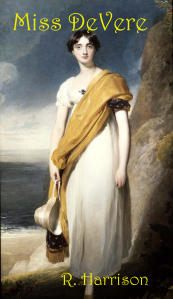 This is a fun read, and unlike “The curious profession of dr craven
This is a fun read, and unlike “The curious profession of dr craven 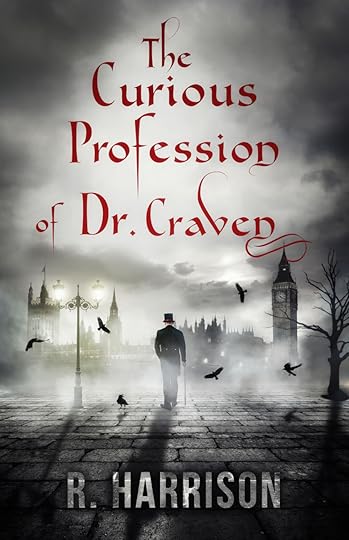 ” seems to not carry a curse.
” seems to not carry a curse.
Frankenkitty is available.
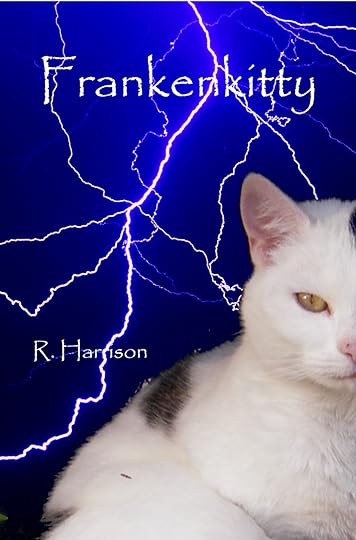 What happens when teenagers get to play with Dr Frankenstien’s lab notebooks, a few odd chemicals and a great big whopping coil? Mayhem, and possibly an invitation to the Transylvanian Neuroscience Summer School.
What happens when teenagers get to play with Dr Frankenstien’s lab notebooks, a few odd chemicals and a great big whopping coil? Mayhem, and possibly an invitation to the Transylvanian Neuroscience Summer School.
Get Free Stuff and try out my landing page. There are three free complete short stories (including an ARC for Frankenkitty) available after you’ve gone through the hoops.


April 1, 2016
To E
Sara Teasdale, 1884 – 1933
The door was opened and I saw you there
And for the first time heard you speak my name.
Then like the sun your sweetness overcame
My shy and shadowy mood; I was aware
That joy was hidden in your happy hair,
And that for you love held no hint of shame;
My eyes caught light from yours, within whose flame
Humor and passion have an equal share.
How many times since then have I not seen
Your great eyes widen when you talk of love,
And darken slowly with a fair desire;
How many time since then your soul has been
Clear to my gaze as curving skies above,
Wearing like them a raiment made of fire.
Though, if I’d written this it would be To I.


In London, waiting. #Fridayreads
An excerpt from the Curious Profession of Dr. Craven. Available at fine bookstores everywhere (Actually just Amazon). This excerpt is from about halfway through the story. Cecelia (Henrietta) has recovered her memory and has been spirited away to the Village and out of the company of the good doctor.
London.
Impatient for the settlement, Lord Patterson insisted that the family take up residence in London as quickly as possible. Barely a week later found them ensconced in George, Baron Clearwater’s townhouse. The elegant building, which had come with his wife, had been more than large enough for the two of them. Now with Lord Patterson’s less than temperate behaviour, and Cecelia’s sulks, it seemed far too small.
“Ellen, my love,” George said one morning as they walked down the front steps for a morning perambulation, and to get away from their relatives. “As much as I love and respect my father, I wish he could be more sensible.”
“I find him amusing.”
“His singing didn’t wake you last night?”
“Was that him? I thought it was one of those balladeers or hurdy-gurdy men. He’s missed his calling in life.”
George smiled at Ellen. Her willingness to see the humorous side in his dreadful family was one of the reasons he loved her. That, and her good sense. “I’m glad you found it amusing. Still, what are we going to do about my sister? That Sharpless fellow is due any day now, and she can’t meet him with weeping eyes.”
“I wish she’d forget about that doctor. It’s a pity the season hasn’t started yet because she’d soon lose herself in balls, dancing, and officers.”
“I suppose you’re right. I’d like to get her out of the house, would you like an expedition to the orchards in Kensington?”
“Watch the harvest?”
“It’s better than staring at the walls, and the air might remind her of the country.”
“Good idea, and while we’re out, let’s stop at a bookseller and find a copy of ‘The Picture of London.’ There’s bound to be something she’d like.”
“Just like a woman, Ellen, finding an excuse to shop. We’ll look like silly noddys doing that, green fellows just up from the country, but it’s all for a good cause.”
A few minutes after George and Ellen left the townhouse on their mission of mercy, or at least on their mission of relief, Cecelia dashed down the steps. She carried a folded and sealed letter. It was addressed to Mary Bridges in Streatham, but intended for someone else’s eyes. She walked until she found a red-coated postman who was ringing his bell. Giving him a penny, she quickly kissed the letter and handed it to him. Always pleased to bear missives from young ladies, he smiled at her, nodded, and put it into his satchel. The letter was on its way, first to the General Post Office in Lombard Street, and from there to the mail coach, and eventually the Pied Bull in Streatham. There it would be picked up and taken to Dr. Craven’s house where Mary would pay for it and deliver it to him. It expressed sentiments that were dramatically different from the last letter she wrote.
She returned to the townhouse and quietly slipped up the steps. Her caution was in vain, she met her father, Lord Patterson, standing in the open doorway. He was waiting for her, clearly annoyed with her digression.
“What was that about, girl?”
“Nothing.”
“Are you disobeying me and sending that doctor a letter?”
“It wasn’t addressed to the doctor.”
“No?”
“No. Rather, it was to a friend of mine, Mary Bridges.”
“Oh, not that doctor then?”
“Absolutely not. Now I should like to come in and finish my breakfast.”
Lord Patterson moved to the side of the doorway to let his daughter enter. He noticed that she had a touch of spring in her step, a spring that had not been there before. “If you’re lying to me girl, it will go badly for you.”
Cecelia thought that it couldn’t go much worse than it had been. She hadn’t exactly been lying, just not telling the entire truth.
“I’ll send you to stay with your Aunt Augusta, in far off Glossop, if you’re not mindful of my strictures. After a few months with her, out in the wilds where a month seems like a year, you’ll be begging me to bring you back.”
“I like the country.”
“Morning prayers my dear. I never could stand my sister’s strident piety. I doubt you’d find it enjoyable.”
“It doesn’t matter; I’ve lived with that before. Now if you’ll excuse me, I should like to finish my meal and then my book.”
Dr Craven is on Choosy Bookworms Read and Review program. It’s buried, which is somewhat appropriate given the subject matter, about half-way down the page. If you’re willing to review it, you can get a free copy.You can read the first chapter here.
March 31, 2016
The Lady That Loved a Swine
Anonymous
There was a lady loved a swine,
“Honey!” quoth she;
“Pig-hog, wilt thou be mine?”
“Hoogh!” quoth he.
“I’ll build thee a silver sty,
Honey!” quoth she;
“And in it thou shalt lie!”
“Hoogh!” quoth he.
“Pinned with a silver pin,
Honey!” quoth she;
“That thou mayest go out and in,”
“Hoogh!” quoth he.
“Wilt thou have me now,
Honey?” quoth she;
“Speak, or my heart will break,”
“Hoogh!” quoth he.


March 30, 2016
The Thinker
William Carlos Williams, 1883 – 1963
My wife’s new pink slippers
have gay pom-poms.
There is not a spot or a stain
on their satin toes or their sides.
All night they lie together
under her bed’s edge.
Shivering I catch sight of them
and smile, in the morning.
Later I watch them
descending the stair,
hurrying through the doors
and round the table,
moving stiffly
with a shake of their gay pom-poms!
And I talk to them
in my secret mind
out of pure happiness.
Actually, my wife detests pink, and prefers striped socks to slippers. This poem is a masterful love-poem, without all that yucky mushy stuff of hearts and cupids. It captures how I feel about her.


March 29, 2016
Limitations
Henrietta Cordelia Ray, 1848 – 1916
The subtlest strain a great musician weaves,
Cannot attain in rhythmic harmony
To music in his soul. May it not be
Celestial lyres send hints to him? He grieves
That half the sweetness of the song, he leaves
Unheard in the transition. Thus do we
Yearn to translate the wondrous majesty
Of some rare mood, when the rapt soul receives
A vision exquisite. Yet who can match
The sunset’s iridescent hues? Who sing
The skylark’s ecstasy so seraph-fine?
We struggle vainly, still we fain would catch
Such rifts amid life’s shadows, for they bring
Glimpses ineffable of things divine.



